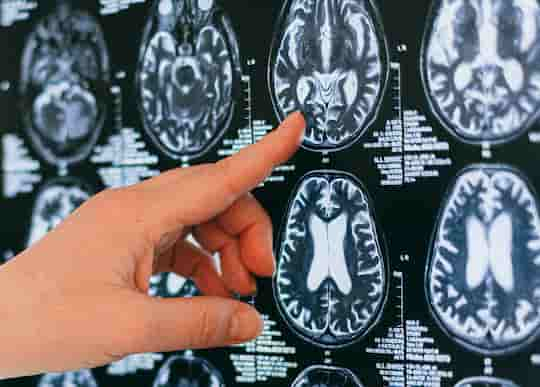A version of the Mediterranean diet reduces memory loss and slows down brain shrinkage.
The green Mediterranean diet, which is plant-based and enriched with polyphenols and low in meat, appears to slow down age-related brain atrophy.
Although factors such as aging and obesity can cause shrinkage of the brain cells leading to cognitive decline and dementia, certain diets can help to prevent brain atrophy.
To test that, a clinical trial examined the impact of a high-polyphenol Mediterranean diet (GREEN-MED) on age-related brain atrophy.
The trial ran for 18 months involving 284 obese participants who were divided into three groups (healthy dietary guidelines, Mediterranean diet, and GREEN-MED) combined with aerobic exercise.
Participants also underwent whole-brain MRI scans at the start and end of the study.
All participants received physical activity (PA) programs and free gym membership.
Besides PA sessions, the healthy dietary guidelines group received regular nutritional counselling sessions promoting healthy diets.
The Mediterranean diet (MED) and the GREEN-MED groups had to follow a low calorie diet; 1200-1400 kcal per day for women and 1500-1800 kcal per day for men.
Their everyday diet was low in carbohydrates, rich in vegetables, including fish and poultry instead of red meat, and 28 grams of walnuts, containing 440 mg of polyphenols.
In addition to these, the GREEN-MED group drank 3 to 4 cups of green tea per day, and their dinner was a green shake of Mankai duckweed containing 800 mg of polyphenols.
The results showed that brain shrinkage was reduced significantly in those who followed either the MED or GREEN-MED diets.
The effect was even greater in the GREEN-MED group, particularly for those over age 50, suggesting the diet is neuroprotective.
The study’s authors wrote:
“The beneficial association between MED and age-related neurodegeneration might be partially explained by the abundance of polyphenols in plant-based food sources which have antioxidant and anti-inflammatory metabolites.
Polyphenols can cross the blood-brain barrier (BBB) reduce neuroinflammation and induce cell proliferation
and adult-onset neurogenesis in the hippocampus.”
The authors concluded:
“Our findings might suggest a simple, safe, and promising avenue to slow age-related neurodegeneration by adhering to a green-Mediterranean diet.”
A different study also found that the Green Med diet is better than the traditional Mediterranean diet since it reduces the odds of developing diabetes and heart disease even more.
The study was published in The American Journal of Clinical Nutrition (Kaplan et al., 2022).

